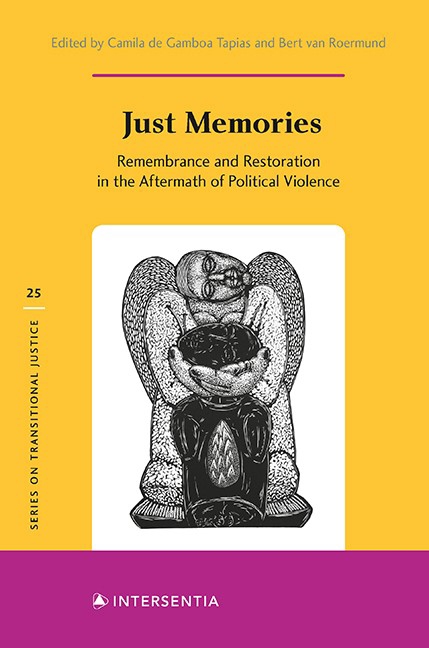Chapter 5 - Anamnesis – Or Reparation as Responsive Remembrance
Published online by Cambridge University Press: 11 February 2021
Summary
INTRODUCTION
In many polities, the transition from a rule of oppression to a rule of law 3 requires that various forms of “restorative justice” be done, as well as be seen to be done. Ofter enough, therefore, transitional justice entails not just a robust policy geared towards the rule of law, but also a policy that is mindful of a wrongful past. But then, not all forms of political mindfulness about a past of oppression, violence and suffering will work towards a future under the rule of law. This chapter argues that transitional justice, if and when it should usher in restoration somewhere, has to engage a specific kind of responsive remembrance that is here called anamnesis. The chapter will try and carve out the time structures involved in anamnesis and show that these are a good deal more complex than the links between past and future as they are usually distinguished in reflections on transitional justice. In particular, it will unravel these structures through an analysis of the nuclear formula “never again” that seems to capture the very core of various efforts to come to terms with political oppression in the past. The first part (Section 2) deals with three simplistic readings of the formula; Section 3 explores a more profound reading of “remembrance”, while Section 4 ties this reading in with restorative action. Thus, “anamnesis” becomes a lodestar on the thin line between liberating and enslaving remembrance.
“NEVER AGAIN” : THREE OVERLY SIMPLE STRATEGIES
How to live together with one‘s former oppressors? Both the attempt to fence oneself off from them and the effort to offer them a modus vivendi will use the same firm device: never again (nunca mas; nie wieder, etc.). These two words neatly express a speech act.
- Type
- Chapter
- Information
- Just MemoriesRemembrance and Restoration in the Aftermath of Political Violence, pp. 91 - 112Publisher: IntersentiaPrint publication year: 2020



